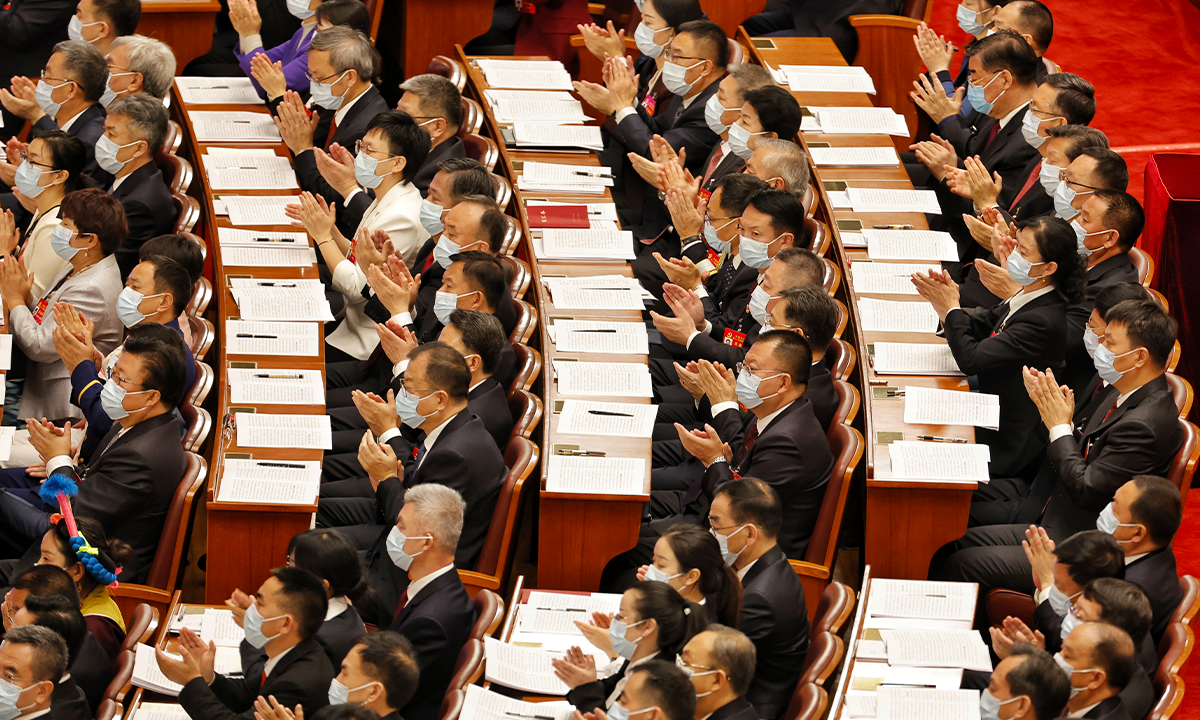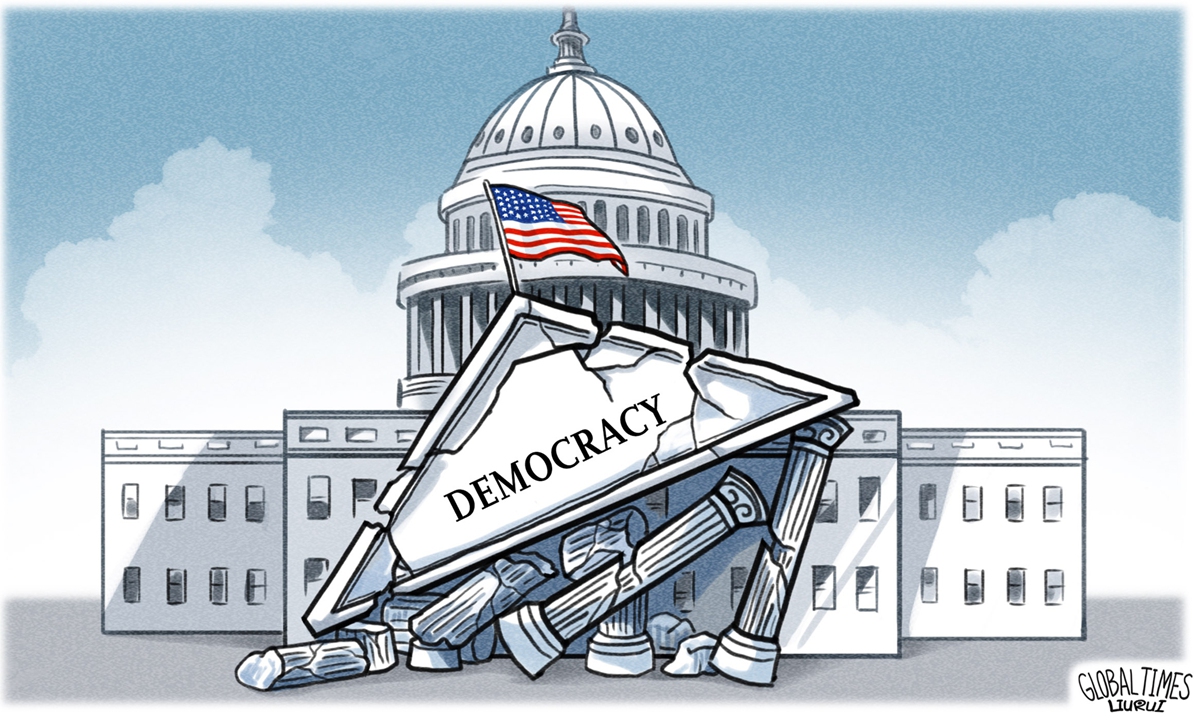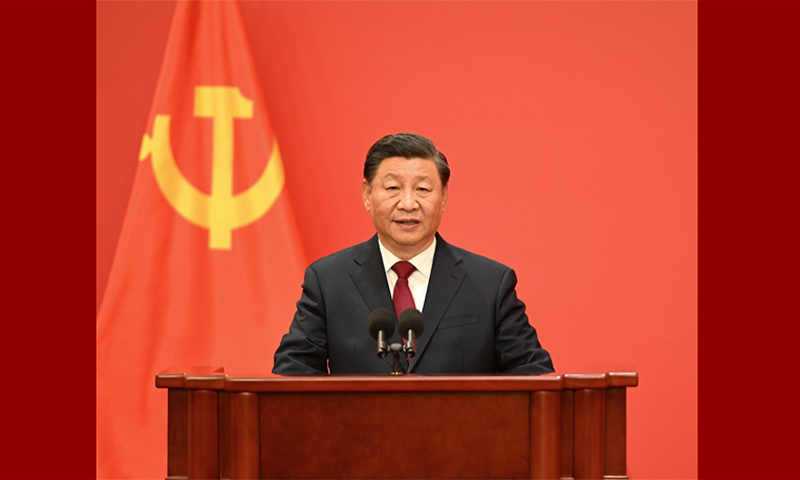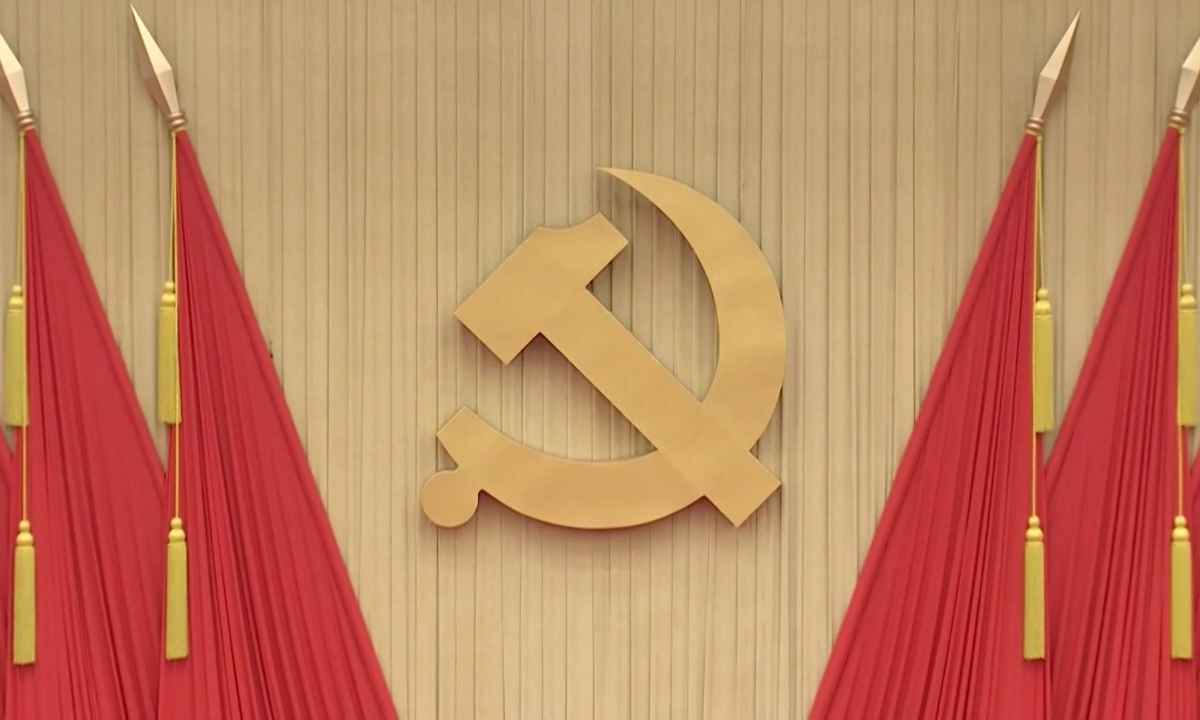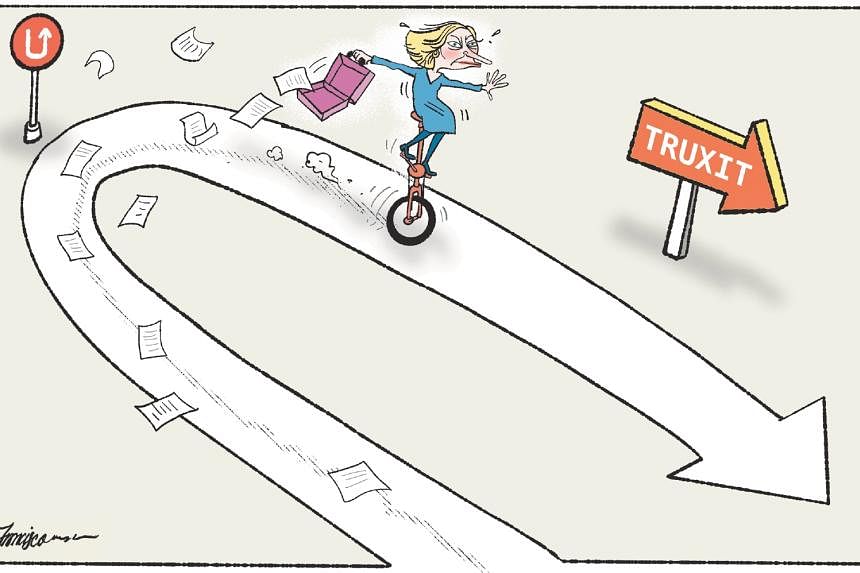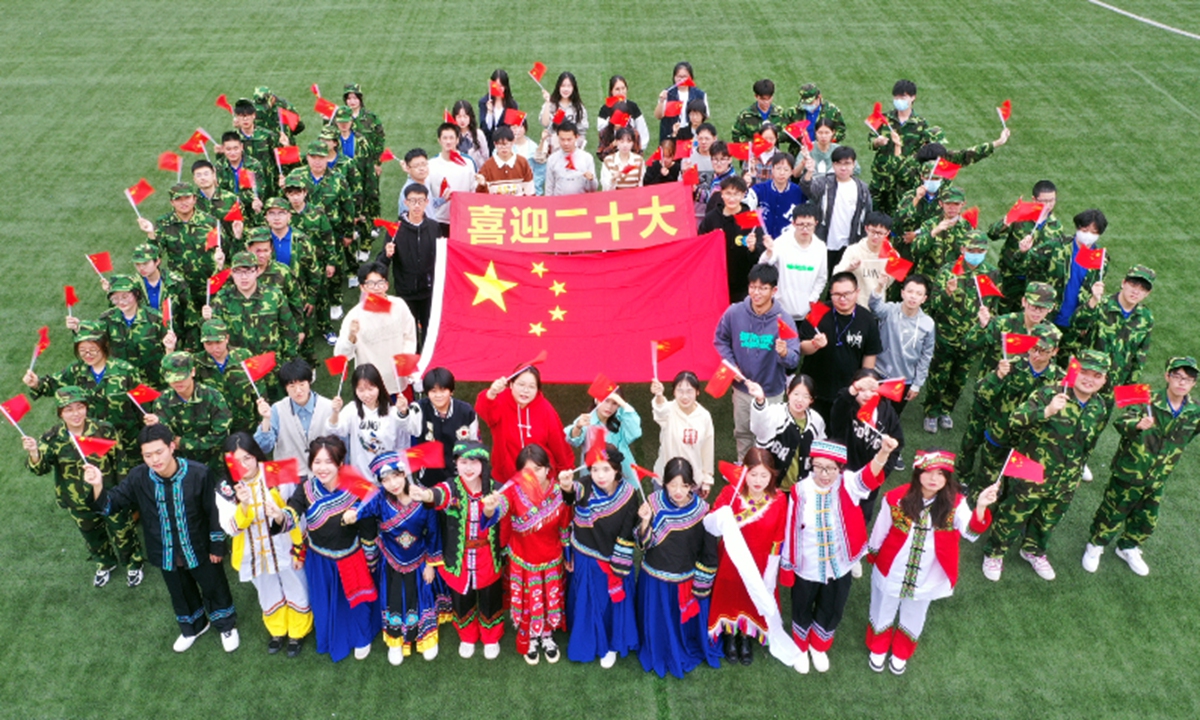
Xi Jinping, general secretary of the Communist Party of China (CPC) Central Committee, and the other newly elected members of the Standing Committee of the Political Bureau of the 20th CPC Central Committee Li Qiang, Zhao Leji, Wang Huning, Cai Qi, Ding Xuexiang and Li Xi, meet the press at the Great Hall of the People in Beijing, capital of China, Oct. 23, 2022. (Xinhua/Shen Hong)
Xi Jinping was elected general secretary of the 20th Central Committee of the Communist Party of China (CPC) at the committee's first plenary session held on Sunday, according to the communique of the plenary session.
The session, presided over by Xi, was attended by 203 members of the 20th CPC Central Committee and 168 alternate members. Xi was also named chairman of the CPC Central Military Commission at the session. The members of the Standing Committee of the Political Bureau of the CPC Central Committee elected at the session are Xi Jinping, Li Qiang, Zhao Leji, Wang Huning, Cai Qi, Ding Xuexiang and Li Xi. Zhao and Wang were members of the Standing Committee of the Political Bureau of the 19th CPC Central Committee. Li Qiang, Cai and Li Xi have served as Party chiefs of municipal CPC committees in Shanghai, Beijing and the Provincial CPC committee of Guangdong Province since 2017. Ding has been director of the General Office of the CPC Central Committee since 2017. Analysts said the new central leadership of the Party with a strong core leadership, demonstrated solid unity, which is a key advantage and essential element for the Party to handle complex challenges and accomplish new great missions in the future, and to withstand "dangerous storms" in a turbulent world together. Also elected at the first plenary session of the 20th CPC Central Committee were members of the Political Bureau of the CPC Central Committee at the session, which endorsed the members of the CPC Central Committee Secretariat nominated by the Standing Committee of the Political Bureau of the CPC Central Committee. The session named the members of the Central Military Commission, with Zhang Youxia and He Weidong as vice chairmen. The session approved the secretary, deputy secretaries and members of the Standing Committee of the Central Commission for Discipline Inspection (CCDI) elected at the first plenary session of the 20th CCDI. Remarks of confidence After the plenary session concluded, Xi led the Party's new central leadership to meet Chinese and foreign journalists on Sunday at the Great Hall of the People in Beijing, and delivered a speech at the meeting with the press. Xi said China will open its door wider to the rest of the world. "We'll be steadfast in deepening reform and opening up across the board, and in pursuing high-quality development," Xi said when meeting the press, noting that a prosperous China will create many more opportunities for the world. Just as China cannot develop in isolation from the world, the world needs China for its development, Xi said. Through over 40 years of relentless reform and opening-up, China has created the twin miracles of fast economic growth and long-term social stability, he said. Chinese analysts said it shows that both the CPC's and Chinese people's determination on reform and opening-up is unchanged, and the Party will unwaveringly insist on the successful policy and strategy, which is a message of confidence and certainty not only to the Chinese economic development, but also to the world in turbulence and global recovery. The Chinese economy has great resilience and potential, Xi said. "Its strong fundamentals will not change, and it will remain on the positive trajectory over the long run."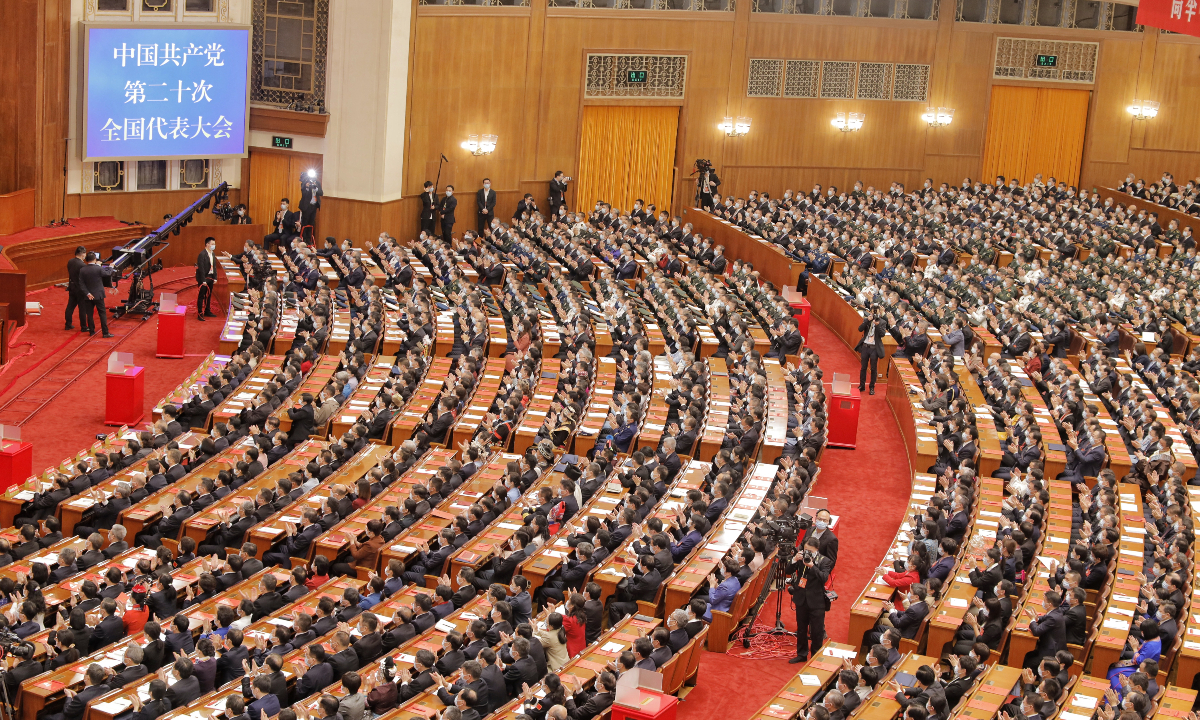 The week-long 20th National Congress of the Communist Party of China (CPC) concludes on October 22, 2022, at the Great Hall of the People in Beijing. Photo: Li Hao/GT
The week-long 20th National Congress of the Communist Party of China (CPC) concludes on October 22, 2022, at the Great Hall of the People in Beijing. Photo: Li Hao/GT
Humanity's shared values
Xi on Sunday also expressed China's commitment to promoting the building of a human community with a shared future. "We will work with peoples of all other countries to champion humanity's shared values of peace, development, fairness, justice, democracy, and freedom to safeguard global peace and promote global development, and keep promoting the building of a human community with a shared future," Xi said when meeting the press at the Great Hall of the People. Xi's remarks further highlight the core ideas of China's diplomacy since the 18th CPC National Congress, emphasizing the stability and continuity of major diplomatic policies, which drew a sharp contrast with certain countries that emphasize their own absolute security and maximize their own interests, building up small blocs, Su Xiaohui, deputy director of Department of International and Strategic Studies at the China Institute of International Studies, told the Global Times on Sunday. "It shows that our diplomacy is not based on selfish and zero-sum mentalities, and the idea of promoting a human community with a shared future is winning and will win more support from the international community, especially from developing countries," Su said. The concept of "humanity's shared values" presented by the CPC is very different from the "universal values" promoted by the West, experts said. Based on the facts about the destruction and chaos in the non-Western world that has been caused by major Western powers, these so-called "universal values" actually serve as a pretext for hegemony to bully, interfere in and invade other nations, and the "values" are actually dividing the world rather than uniting it, as the West, especially the US, uses these concepts to create "enemies and competitors" to unite its own allies and followers, despite being guilty of hypocrisy and double-standards in many cases. But the CPC's concept of "humanity's shared values" is inclusive and aims to unite all members of the international community and all civilizations, which also include civilizations in the Western world, and China under the CPC's leadership will always oppose and fight hegemony that threatens world peace, and will never follow the suit of hegemony or imperialism in the past to repeat the bloody and brutal path of rising in the new journey toward its Second Centenary Goal, experts said. At this critical moment for the world to learn what China's core leadership will do, experts noted that China's core diplomatic ideas were incorporated in Xi's first address since he was elected general secretary of the 20th Central Committee of the CPC, indicating that China will uphold those common values of humanity by highlighting fairness and justice. Keep Party invincible "A political party can only become invincible if it remains committed to self-reform, even though it has had a glorious past," Xi made the remarks when meeting the press at the Great Hall of the People. The revolutionary travails and tempering of the past century, and especially of the first decade of the new era, have made the CPC stronger and more dynamic, Xi said. Xi urged the CPC members to remain on high alert and stay sober-minded and prudent in the face of new challenges and tests on the journey ahead. Zhang Shuhua, director of the Institute of Political Sciences of the Chinese Academy of Social Sciences, told the Global Times on Sunday that "Facing an increasingly complex international environment, especially when Western political systems are deteriorating and many Western countries have no longer been able to elect leaders with professional performance, the CPC underscores a strong leadership, showing its capability to organize, unite and execute." Political authority, consistency and certainty of the leadership are important for a major power to prevent the risk and handle the crisis in a turbulent world, and the CPC provides crucial advantages for China to overcome challenges in the future and to win the tough competition and confrontation launched by a few countries, experts said."We must make sure that our century-old Party, the biggest in the world, will become ever more vigorous through self-reform and continue to be the strong backbone that the Chinese people can lean on at all times," Xi said. He stressed that the Party should always act for the people and rely on the people on the journey ahead.
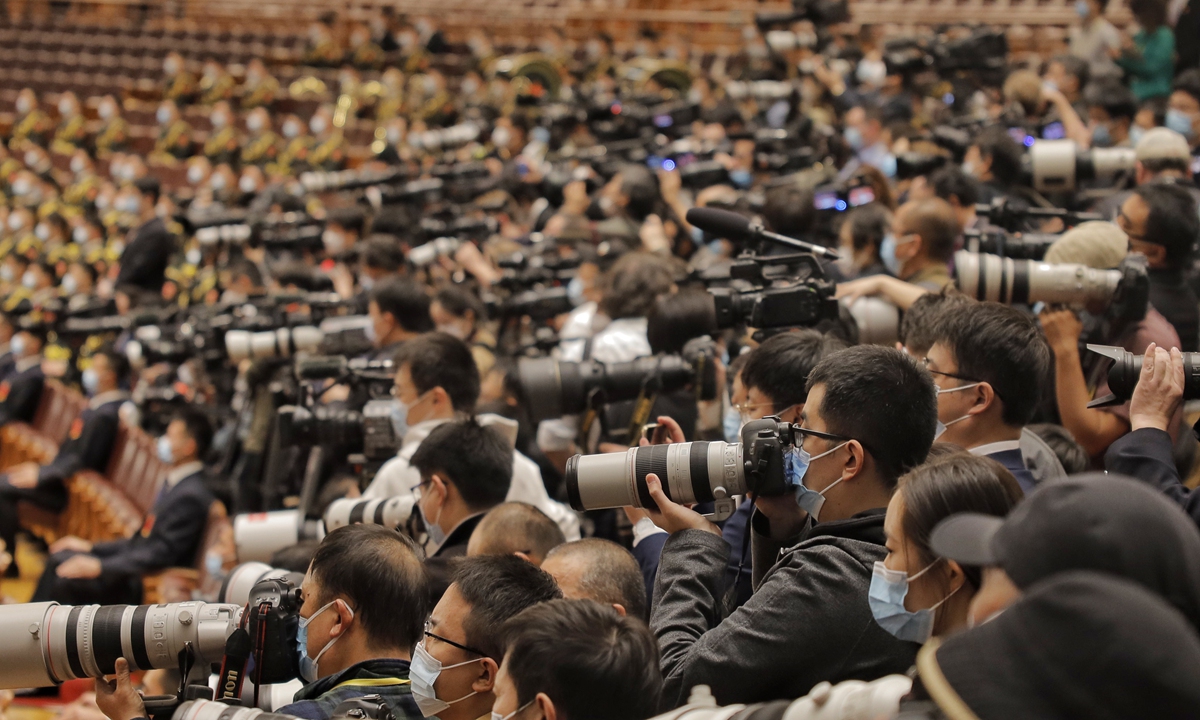 The week-long 20th National Congress of the Communist Party of China (CPC) concludes on October 22, 2022, at the Great Hall of the People in Beijing. Photo: Li Hao/GT
The week-long 20th National Congress of the Communist Party of China (CPC) concludes on October 22, 2022, at the Great Hall of the People in Beijing. Photo: Li Hao/GT
Hope US will comprehensively, accurately receive signals from 20th CPC National Congress: Global Times editorial
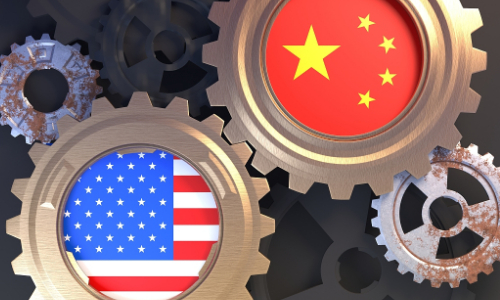
It is hoped that the US can fully and accurately receive the signals the 20th CPC National Congress has sent out, correct its strategic perception of China, meet China halfway, and push China-US relations
China's new journey will show richer global significance: Global Times editorial
On Sunday noon, members of the Standing Committee of the Political Bureau of the 20th Communist Party of China (CPC) Central Committee appeared before the press at the Great Hall of the People in Beijing. This event marks that a series of important political agendas surrounding the 20th CPC National Congress came to a successful conclusion. Like a huge ship, China will move forward under the leadership of the new CPC Central Committee with Comrade Xi Jinping at its core. The course the Party has charted has a global significance: It not only reflects the maturity and stability of the CPC as a major party, but also injects certainty into a world beset by changes and turmoil.
China won't export devt model, opposes imposition on others
The just-concluded 20th National Congress of the Communist Party of China (CPC) elaborated on Chinese modernization, which offers a path for other countries to seek inspiration, senior Party officials at a Monday press conference reiterated that China will not export its model to other countries, nor will it import models from other countries; every country should explore its own way to modernization that suits its own situation, in response to questions and concerns from the West about whether "China might export its ideology or development model."
Existing loopholes in US electoral or democratic system require political and legal reforms, but there seems to be little momentum to achieving so. The prospect of US-style democracy is dim.
Related posts:
How Britain fell from grace


